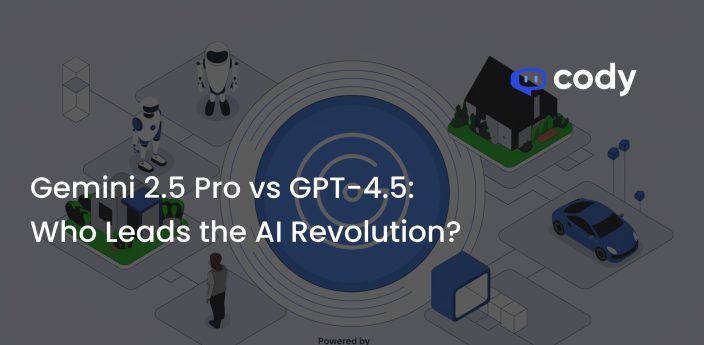
Perplexity Comet: Bold Leap into Agentic Search
Perplexity, the AI-powered search engine giant, is making waves in the tech world with its latest venture: a revolutionary web browser called Comet. Billed as “A Browser for Agentic Search by Perplexity,” Comet represents a bold step into the competitive browser market. While details about its design and release date remain under wraps, the company has already launched a sign-up list, teasing that Comet is “coming soon”.
This move comes at a time of significant growth for Perplexity. The company, valued at an impressive $9 billion, currently processes over 100 million queries weekly through its search engine. The introduction of Comet signifies Perplexity’s ambition to extend its influence beyond search, potentially reshaping how users interact with the web. As anticipation builds, Comet stands poised to become a pivotal element in Perplexity’s expanding digital ecosystem.
Key Features of Comet
Comet leverages “Agentic Search,” a powerful capability that enables autonomous task execution. This means users can delegate complex tasks like booking flights or managing reservations to the browser, significantly enhancing productivity.
Built on a Chromium-based foundation, Comet ensures cross-platform compatibility, providing a seamless experience across desktop and mobile devices. This design choice combines the stability of established browser technology with Perplexity’s cutting-edge AI innovations.
- Deep Research Integration: Comet offers comprehensive analysis tools, facilitating in-depth research directly within the browser.
- Real-time Information Processing: Users benefit from up-to-date information complete with source citations, ensuring accuracy and credibility.
- Extensive App Integrations: With support for over 800 applications, Comet aims to become a central hub for users’ digital activities.
By blending AI with traditional browser functions, Comet is set to transform how users interact with the web, potentially altering the landscape of productivity and information processing. As Perplexity puts it, Comet is truly “A Browser for Agentic Search,” promising a new era of intelligent web navigation.
Strategic Positioning and Market Context
As Perplexity ventures into the highly competitive browser market with Comet, it faces formidable challenges from established players like Google Chrome and emerging AI-enhanced browsers such as Dia from The Browser Company. However, Comet’s unique positioning as an AI-powered, Chromium-based browser with advanced task automation capabilities sets it apart from traditional offerings.
While Google Chrome boasts a massive user base and basic AI features, Comet aims to differentiate itself through its sophisticated AI capabilities, extensive app integrations, and deep research tools—all without the need for additional extensions. This approach could appeal to users seeking a more intelligent and streamlined browsing experience, potentially challenging Chrome’s dominance in certain segments.
Perplexity’s marketing strategy for Comet cleverly leverages its existing search engine user base, which already processes over 100 million queries weekly. By tapping into this established audience, Perplexity aims to facilitate a smoother adoption of Comet, potentially giving it a significant advantage in user acquisition and engagement in the competitive browser landscape.
Legal and Ethical Considerations
As Perplexity ventures into the browser market with Comet, it faces not only technological challenges but also significant legal and ethical hurdles. The company has recently found itself embroiled in legal disputes with major publishers over content usage. News Corp’s Dow Jones and the NY Post have filed lawsuits against Perplexity, accusing it of unauthorized content replication and labeling the company a “content kleptocracy.” Additionally, The New York Times has issued a cease-and-desist notice, further intensifying the legal pressure.
In response to these allegations, Perplexity maintains that it respects publisher content and has introduced a revenue-sharing program for media outlets. This move appears to be an attempt to address concerns and establish a more collaborative relationship with content creators. However, the effectiveness of this program in resolving legal disputes remains to be seen.
Q: What are the ethical implications of AI-driven web browsing?
A: The introduction of AI-powered browsers like Comet raises important ethical questions about data privacy and user autonomy. Cybersecurity analysts, such as Mark Thompson, have expressed concerns about how user data might be collected, processed, and potentially shared when using AI-driven browsing tools. As Comet promises to revolutionize web interaction through features like agentic search and extensive app integrations, it also amplifies the need for transparent data practices and robust privacy protections.
Expert Opinions and Industry Insights
As Perplexity’s Comet browser prepares to enter the market, experts are weighing in on its potential impact and implications. Dr. Sarah Chen, a prominent AI researcher, suggests that Comet could fundamentally alter how users interact with online information, thanks to its advanced agentic search capabilities. This perspective aligns with Perplexity’s rapid growth, as evidenced by its AI search engine now processing around 100 million queries weekly.
Despite the concerns, industry observers anticipate significant growth in AI integration within web technologies. Perplexity’s $9 billion valuation and its positioning as a top competitor in the AI search engine space underscore this trend. As Comet prepares to launch, it represents not just a new product, but a potential shift in how we perceive and interact with the internet, balancing innovation with the need for responsible AI implementation.
Will This Transform Search?
The company’s vision to reinvent web browsing, much like its approach to search engines, suggests a future where AI-driven browsers could become the norm. With Perplexity’s rapid expansion and the introduction of innovative products, Comet is poised to capitalize on the growing trend of AI integration in web technologies.
The browser market may see significant shifts as users become accustomed to more intelligent, task-oriented browsing experiences. Perplexity’s focus on agentic search capabilities in Comet could redefine digital interactions, potentially streamlining complex online tasks and reshaping browsing habits. As AI continues to permeate various aspects of technology, Comet represents a bold step towards a future where web browsers act as intelligent assistants, enhancing productivity and transforming how we navigate the digital world.



